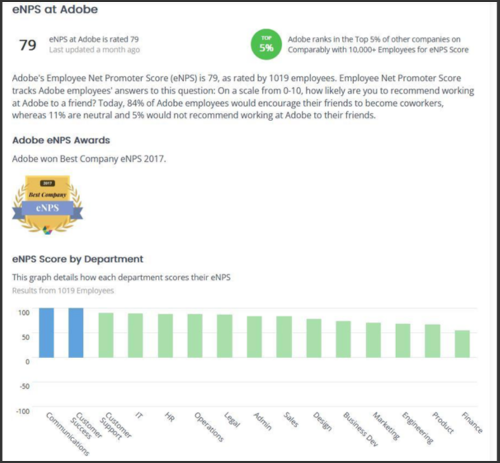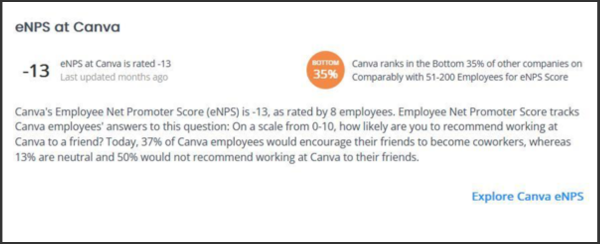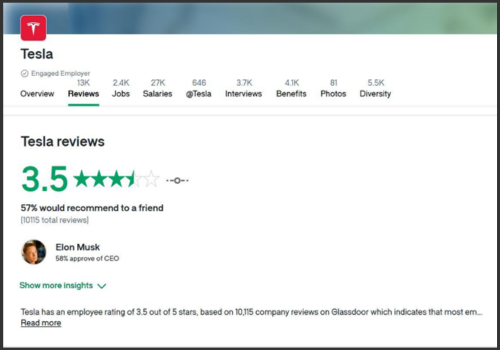Congratulations on graduating and stepping into a new adult life after college! In a perfect world, you’ve received not one but several job offers after investing much time and effort into polishing your résumé and undergoing numerous rounds of interviews. Whether you need to decide between two offers or have a solid heap of opportunities, we’re here to help guide you to the right decision and illuminate the path to your career.
How to compare multiple job offers after graduation
If you find yourself with more than one job offer after you graduate college, it helps to create a checklist of needs and draw a comparison chart that assesses every aspect of each company, leaving notes for yourself as needed. Factors to compare include:
- Base pay or hourly wages
- Workplace perks
- Corporate culture and values
- Learning and career growth opportunities
- Company reputation and stability
- Professional network size
- Location and commute time
- Expected work hours (part-time vs. full-time)
- Schedule flexibility (traditional 9-to-5 workday vs. flexible hours)
- Emphasis or lack thereof on work-life balance
For example, your chart may start with location if that’s of particular importance to you:
|
|
Company A Job Offer |
Company B Job Offer |
Comments |
|
Commute time |
30 minutes |
2 hours |
Job Offer B takes more time to commute, but they give the option to work from home. |
It also helps to write down all the pros and cons of each employment opportunity and assign each advantage and disadvantage a rating on a 1–10 scale based on its significance to you. Then calculate the total sum for each column. Your final step is to compare the numbers and see which job has more advantages.
Related: Easy Next Steps to Follow After Landing a Great Job Offer
Tips for choosing the best job offer as a recent grad
To help you make the wisest choice, here’s some expert advice on what to focus on as you’re considering the advantages and disadvantages of each job offer.
Don’t let salary distract you
Although salary is mentioned first on the checklist, it doesn’t mean it should have the highest significance when debating multiple job offers as a new graduate. There are tons of lucrative entry-level jobs with attractive salaries. Still, they may have specific pitfalls you must reckon with, according to Gary Hemming, Owner & Finance Director at ABC Finance. “A higher pay or compensation package naturally looks like a huge financial win,” he explains. “However, you may end up spending more on commuting, work equipment, or other things. When these costs eat into your earnings, the financial benefit may be scanty and not as impressive as it seemed at first glance.”
Pay close attention to the employee benefits package
When choosing between your first job offers, focus on each company’s benefits package. Generally, the top-valued employee perks include insurance (life, dental, and vision); physical and mental health programs; generous paid time off; commuter benefits; retirement plans like a 401(k), employee stock ownership, SIMPLE IRA, cash-balance plan, etc.; and employee discounts.
Employee discounts especially could keep your wallet heavy while you save on everyday purchases like furniture, clothes, or electronics and stretch your salary even further. For example, Helix Sleep provides employees a free mattress (a huge perk considering the average mattress price is anywhere from $1,500–$3,000), a home office setup stipend, and discounts on all products so their workers can economize.
Some employers may even help you reduce your college debt. “Many new employees who have just graduated from college may have enormous student loans to pay back,” says Jeffrey Zhou, CEO and Founder of Fig Loans. “This makes student loan repayment an invaluable workplace perk for them.” If that’s the case for you, ask potential employers if they offer loan repayment assistance, and be sure to clarify all the details and conditions.
Related: Important Advice on How New College Graduates Can Negotiate Salary
Make sure you fit in and add to the culture
The skeleton of any organizational culture consists of a mission, vision, and values. Some of the most common corporate values include integrity, openness, social responsibility, sustainability, innovation, customer-centricity, and diversity, equity, and inclusion (DEI). “Be cautious against a total mismatch between your personal beliefs and the company’s core principles,” advises Albert Kim, VP of Talent at Checkr. “Instead, try to understand which value comes first for employers when choosing between multiple job offers as a graduate and then ask yourself: Where would I make a better culture add?”
Listen to what current employees say about their workplaces
There are several resources you can use to see which job may make you happier. One is the Employee Net Promoter Score (eNPS), which measures employee job satisfaction and shows whether workers recommend their organizations as great workplaces. Scores from 10–30 imply the company is a good place to work, whereas 70–80 indicates an excellent workplace. You can search for eNPS at Comparably, though not all employers are listed here.
Let’s take Adobe and Canva as examples. Adobe's eNPS is as high as 79, while Canva’s eNPS is as low as -13. This may serve as a red flag for graduates deciding between job offers from these two companies. However, you should take eNPS scores with a grain of salt, as they can vary due to factors like employee sample size, recent company changes, and differing experiences across departments.

Adobe eNPS courtesy of Comparably

Canva eNPS courtesy of Comparably
Check social media, online chatter, and employee review sites
Speaking in legal terms, Chris Aubeeluck—Head of Sales and Marketing at Osbornes Law—recommends conducting a social media investigation about the employers who’ve extended job offers. “When you track brand mentions on social platforms like X (Twitter) or forums like Reddit, you can view the company through their employees’ eyes and get the insider information,” he says. “Amid your research, you may find and compare positive and negative employee experiences in companies offering you a job after graduation.” However, it's important to take emotional reviews with a grain of salt, as individual experiences can be subjective and may not fully reflect the overall workplace environment.
Job search sites like Indeed and Glassdoor also allow you to read reviews from current and former employees. Look for concerns regarding leadership, coworker relationships, and corporate atmosphere. For example, as an employer, Tesla has earned a 3.5 rating with over 13,000 reviews on Glassdoor.

Tesla review courtesy of Glassdoor
Related: How to Land Your Dream Career Using Social Media
Examine each employer’s long-term stability
It may not come as a surprise that a startup has a higher failure rate compared to a seasoned business player in the industry. In fact, 20% of startups fail within the first year, and 50% collapse within five years. Yet a company’s age is not always a marker of stability. “Even the oldest and strongest organizations may go bankrupt,” says Jarret Austin, owner of Bankruptcy Canada. “There are three major aspects to consider when checking the employer’s stability: their standing on the market, financial report, and expansion strategy.” Here’s how he recommends assessing jobs with this formula:
- Industry standing: Try using CompaniesMarketCap to scan a company’s market value, revenue, and other metrics.
- Annual financial report: Consider debt levels and how a workplace manages theirs by Googling “company name + financial report.”
- Business expansion plans: This could include opening a new location, designing a new product/service, or investing in cutting-edge technologies like artificial intelligence or virtual reality.
You must think about long-term viability and visualize a clear career path when choosing a job offer as a new graduate. That’s why it’s crucial to figure out each company’s growth targets to understand whether you’ll be able to grow as a professional in your field without “what-ifs” and uncertainties.
Related: How to Climb Up the Corporate Ladder
You’ve studied hard to reach this moment—now it’s time to seal the deal. Pick the job that resonates with your passion, values, and career goals. This is your chance to take control of your future. Once again: Thoroughly evaluate your options, trust your instincts, and dive confidently into the career that excites you most. Whichever you prefer, let it be an outstanding employee experience and a meaningful career journey for you. Good luck!
Once you’ve accepted your first position, you need to be prepared to do your best work. Use this advice on How to Ace the First 6 Months of Your First Postgrad Job to impress your new employer!







